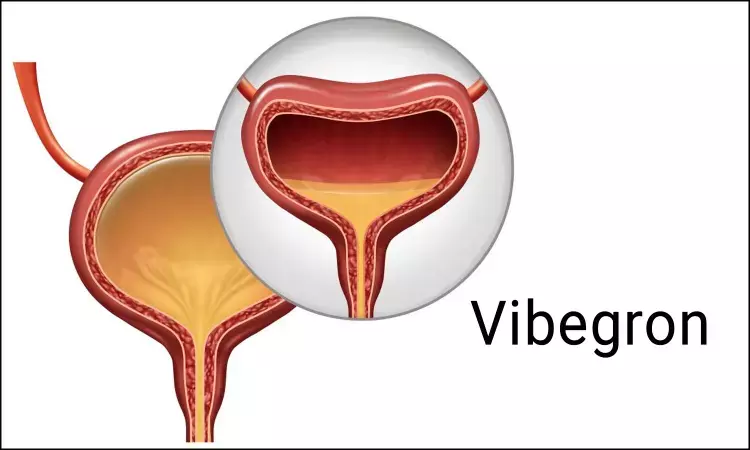- Home
- Medical news & Guidelines
- Anesthesiology
- Cardiology and CTVS
- Critical Care
- Dentistry
- Dermatology
- Diabetes and Endocrinology
- ENT
- Gastroenterology
- Medicine
- Nephrology
- Neurology
- Obstretics-Gynaecology
- Oncology
- Ophthalmology
- Orthopaedics
- Pediatrics-Neonatology
- Psychiatry
- Pulmonology
- Radiology
- Surgery
- Urology
- Laboratory Medicine
- Diet
- Nursing
- Paramedical
- Physiotherapy
- Health news
- Fact Check
- Bone Health Fact Check
- Brain Health Fact Check
- Cancer Related Fact Check
- Child Care Fact Check
- Dental and oral health fact check
- Diabetes and metabolic health fact check
- Diet and Nutrition Fact Check
- Eye and ENT Care Fact Check
- Fitness fact check
- Gut health fact check
- Heart health fact check
- Kidney health fact check
- Medical education fact check
- Men's health fact check
- Respiratory fact check
- Skin and hair care fact check
- Vaccine and Immunization fact check
- Women's health fact check
- AYUSH
- State News
- Andaman and Nicobar Islands
- Andhra Pradesh
- Arunachal Pradesh
- Assam
- Bihar
- Chandigarh
- Chattisgarh
- Dadra and Nagar Haveli
- Daman and Diu
- Delhi
- Goa
- Gujarat
- Haryana
- Himachal Pradesh
- Jammu & Kashmir
- Jharkhand
- Karnataka
- Kerala
- Ladakh
- Lakshadweep
- Madhya Pradesh
- Maharashtra
- Manipur
- Meghalaya
- Mizoram
- Nagaland
- Odisha
- Puducherry
- Punjab
- Rajasthan
- Sikkim
- Tamil Nadu
- Telangana
- Tripura
- Uttar Pradesh
- Uttrakhand
- West Bengal
- Medical Education
- Industry
Vibegron has Promising Effect in Patients With Overactive Bladder

Anticholinergic agents have been a mainstay of treatment for Overactive Bladder (OAB) but, their use is associated with adverse effects, particularly dry mouth and constipation, which contribute to low rates of adherence. In a recent study, researchers have reported that vibegron represents an appealing long-term treatment option for patients with OAB. The research has been published in The Journal of Urology on May 01, 2021.
American Urological Association guidelines for the diagnosis and treatment of nonneurogenic OAB recommend b3-adrenergic receptor agonists as a pharmacological treatment option for OAB in combination with behavioral therapy or following behavioral therapy.
Vibegron is a novel, potent, highly selective b3-adrenergic receptor agonist with a long half-life (25‒38 hours). Previous studies suggest that vibegron have a significant effect in OAB outcome than placebo. Therefore, David Staskin and his team conducted an extended phase 3 study to evaluate the long-term safety, tolerability and efficacy of vibegron in adults with overactive bladder.
The EMPOWUR study was a phase 3, international, 12-week study of adults with wet (incontinence) or dry OAB. The researchers included a total of 506 patient, among which 430 (85%) completed the study. Patients who completed 12 weeks of once-daily vibegron 75 mg or tolterodine 4 mg extended-release in EMPOWUR continued double-blind treatment and, patients who completed 12 weeks of placebo were randomly assigned 1:1 to receive double-blind vibegron or tolterodine.
The major outcome assessed was safety, measured by incidence of adverse events. The researchers also assessed change from baseline at week 52 in the average daily number of micturition and urgency episodes (all patients) and, urge and total urinary incontinence episodes (patients with overactive bladder wet) based on 7-day diary data.
Key findings of the study were:
- Among 430 patients, 12 patients (2.4%) discontinued due to adverse events.
- The common adverse events reported with vibegron/tolterodine (>5% in either group) were hypertension (8.8%/8.6%), urinary tract infection (6.6%/7.3%), headache (5.5%/3.9%), nasopharyngitis (4.8%/5.2%) and dry mouth (1.8%/5.2%).
- Upon analysis, they found that vibegron significantly improved rates of urge urinary incontinence and total incontinence from baseline to week 52.
- They noted that among patients with overactive bladder-wet, 61.0% receiving vibegron experienced ≥75% reduction in urge urinary incontinence episodes after 52 weeks of treatment vs 54.4% with tolterodine, while 40.8% vs 34.2% experienced a 100% reduction.
The authors concluded, "Vibegron demonstrated favorable long-term safety, tolerability and efficacy in patients with overactive bladder, consistent with results of the 12-week study."
For further information:
Dr Kartikeya Kohli is an Internal Medicine Consultant at Sitaram Bhartia Hospital in Delhi with super speciality training in Nephrology. He has worked with various eminent hospitals like Indraprastha Apollo Hospital, Sir Gangaram Hospital. He holds an MBBS from Kasturba Medical College Manipal, DNB Internal Medicine, Post Graduate Diploma in Clinical Research and Business Development, Fellow DNB Nephrology, MRCP and ECFMG Certification. He has been closely associated with India Medical Association South Delhi Branch and Delhi Medical Association and has been organising continuing medical education programs on their behalf from time to time. Further he has been contributing medical articles for their newsletters as well. He is also associated with electronic media and TV for conduction and presentation of health programs. He has been associated with Medical Dialogues for last 3 years and contributing articles on regular basis.
Dr Kamal Kant Kohli-MBBS, DTCD- a chest specialist with more than 30 years of practice and a flair for writing clinical articles, Dr Kamal Kant Kohli joined Medical Dialogues as a Chief Editor of Medical News. Besides writing articles, as an editor, he proofreads and verifies all the medical content published on Medical Dialogues including those coming from journals, studies,medical conferences,guidelines etc. Email: drkohli@medicaldialogues.in. Contact no. 011-43720751


